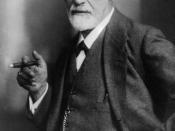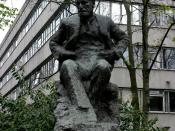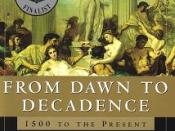Lloyd Demause describes psychohistory as "the science of patterns of historical motivations" and asserts that it is "a science, not narrative art like history". Freud is known as the founder of the psychoanalytical school of thought, the ideas of which can be used with historical enquiry to form psychohistory. Benjamin Wolman believes that a historian's job is to discover "what has happened in history" but psychohistory is useful as it presents a new way of approaching historical findings and of interpreting the information. Freud places a lot of emphasis upon the unconscious actions of man and therefore the role that personal experience, particularly in childhood, plays with regard to motives and actions in history. This is the concept that man can have little self-awareness of the way he is acting and consequently this may have affected certain events in history. However, it appears to be more the way in which psychohistory is interpreted and therefore used that will tell us the most about its influence upon history.
Firstly it is important to look at psychoanalysis as this is used to discover the emotional background that potentially influences people and nations. The combination of psychoanalysis and history has been coined psychohistory. Freud was the founder of psychoanalysis which he saw as a way of treating and interpreting psychological disorders. Psychohistory then goes on to suggest that peoples' actions can be a response to childhood experiences and therefore the theory claims that actions are normally rational rather than irrational as many historians choose to believe. Demause picks up on this point and claims that only when we discover the "Hitler in ourselves" can we fully understand him and his actions. He believes that if a historian denies the "Hitler in ourselves" then they cannot carry out psychohistory. He wrote about his troubled...


